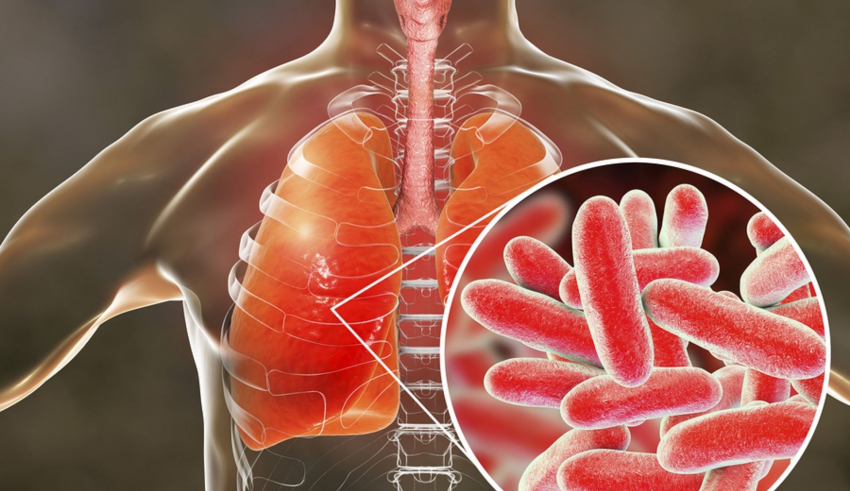
Legionnaire’s disease is a severe pneumonia-like disease that can be caused by lung inflammation usually due to infection. It is caused by microorganisms recognized as legionella. Many people catch this legionnaire’s disease by inhaling the bacteria from water or soil.
Legionella is commonly found in freshwater sources, but it rarely causes any disease in such settings. However, in man-made water resources that are not maintained properly, the bacteria can multiply and causes severe ailments.
The fatality rate is typically around 10% of those infected. This usually means that out of every 100 people developing the disease, around 10 will die.
Table of Contents
How Do Legionnaires Spread?
The manmade water sources include pools, spas, cooling towers of air conditioning systems, plumbing systems, shower heads, etc. Low levels of disinfectants, stagnant water, or water temperature fluctuations can result in the growth of legionella.
Legionella can cause ailments when the bacterium grows to a sufficient amount in contaminated water or small droplets. People can get the disease when they breathe in these water droplets. As it is breathed directly into the lungs, it is very common to develop pneumonia. Legionnaires’ disease usually does not spread from one person to another.
How You Get Legionnaires’ Disease?
You can get legionnaires disease if you breathe in the tiny droplets of water containing bacteria that cause the infection. It can usually occur in places like hospitals or offices where there is a chance of bacteria getting into the water supply.
Some of the common things you can get Legionnaires disease from are:
- Air conditioning systems
- Humidifiers
- Spas
- Taps & shower heads that are not used very often
You cannot get it from:
- Drinking water containing bacteria
- A person having the disease
- Places like ponds, rivers, or lake
Who is at Risk of Getting Legionnaires’ Disease?
Because legionnaires’ disease is caused by an infection of bacteria, those who are exposed to unclean water sources where legionella breeds are at risk are considered at risk of getting the disease.
Along with this, people most at risk of contracting the legionnaires’ disease are those with a weakened immune system, as they have little defense against fighting ailments.
Others becoming ill include:
- People elder than 50 years
- Individuals suffering from chronic lung diseases
- People with certain chronic health issues like diabetes, cancer, or kidney disease
- People who smoke
What are the Common Symptoms of Legionnaires’ Disease?
Some of the common yet significant symptoms of getting ill are:
- Cough
- Shortness of breath
- Chest pain
- High fever
- Muscle aches
- Headaches
- Flu-like symptoms
Other signs may include digestive issues like diarrhea, vomiting, and sickness. If you discover or see any of these symptoms it is advised to see a doctor as soon as possible before the condition may become worse.
How the Disease Can be Treated?
It can be treated with proper antibiotics and adequate rest. Most people can easily recover from legionnaires’ disease, but some people with severe disease require close monitoring and hospitalization to get treatment. Serious complications can result in lung failure or even death.
How to Prevent Legionnaires’ Disease
The most important and effective way to prevent legionnaires’ disease is by maintaining the water supply properly. It can help prevent legionella bacteria grow and multiplying. Along with this, responsible persons, employers, or managers having a duty to ensure safety must regularly inspect the water systems and if necessary, disinfect them regularly to avoid any health hazard.
Water features and fountains should also be routinely cleaned to prevent the disease from further spreading. If employers or any of the staff are found suspected of the disease, they must contact the healthcare providers or doctors immediately to be treated on time.
The Legal Requirements Regarding the Legionnaires’ Disease
Businesses and their employers need to regularly conduct legionella risk assessments to avoid litigation and potential breaches of the law. Violation of safety regulations can result in legal costly claims.
There are certain safety and health legislations set by the government when it comes to protecting the staff from legionella.
The Health and Safety Executive’s Approved Code of Practice (L8) “Legionnaires’ disease: The Control of Legionella Bacteria in Water Systems” contains practical guidance on how a business owner can manage and control the risk of this disease within his/her workplace.
Along with this, some other laws and regulations clearly explain employers’ duties to control legionella at work. These are:
- Health & Safety at Work Act
- The Management of Health & Safety at Work Regulations
- The Control of Substances Hazardous to Health Regulations
Legionella Awareness Training Courses
If you are a business owner or an employer responsible to control and manage water systems within the work premises, then having substantial knowledge and understanding of legionella is vital for you.
There are numerous legionella awareness programs available, but being the manager, you have to analyze the training needs of your workplace to train and equip your personnel.
Some of the effective and thorough courses in this regard are legionella risk assessment course, legionella awareness training, and legionella risk management training for responsible persons.
These courses provide a deep understanding of legionella disease, health risks, preventive measures, and current legislation to comply with the safety and health legislation within a workplace or organization.
Conclusion
This blog post is a depth explanation of everything you need to know about legionnaires’ disease and what are the ways to prevent the spread of the disease. It also explains some common symptoms that can help you identify the disease as well as the latest government guidelines to comply with the law and mitigate the health risks from this pneumonia-like disease.














